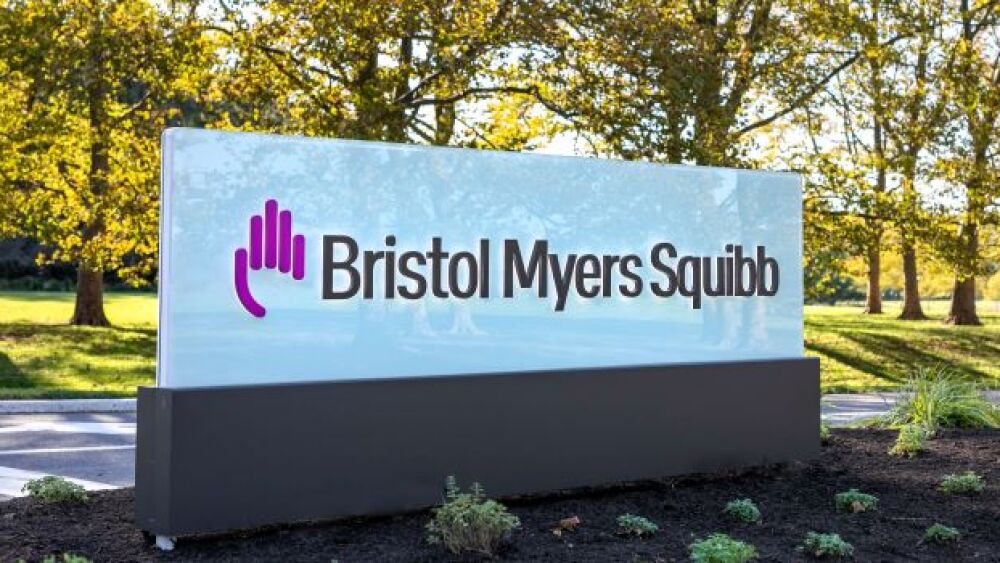Bristol Myers Squibb and Exelixis announced new analysis from the Phase III CheckMate -9ER clinical trial.
Photo courtesy of Bristol Myers Squibb.
Bristol Myers Squibb and Exelixis announced new analysis from the Phase III CheckMate -9ER clinical trial. The study looked at the combination of BMS’s checkpoint inhibitor Opdivo (nivolumab) and Exelixis’ Cabometyx (cabozantinib) compared to Pfizer’s Sutent (sunitinib) in first-line treatment of advanced renal cell carcinoma (RCC). The data showed clinically meaningful, sustained efficacy benefits in addition to quality-of-life improvements.
The data analysis had a median follow-up of two years. In the analysis, the Opdivo-Cabometyx combo showed superior progression-free survival (PFS), objective response rate (ORR) and overall survival (OS) compared to sunitinib. There was also a low rate of treatment-related adverse events (TRAEs) that led to discontinuation of the trial. No new safety signals were observed.
In a separate analysis than the CheckMate -9ER trial that was run with 18.1 months of median follow-up, patients who received the combination reported statistically significant quality-of-life benefits associated with health. This included lower treatment burden, decreased risk of deterioration and a decrease of disease-related symptoms compared to sunitinib. They were evaluated using Functional Assessment of Cancer Therapy Kidney Symptom Index-19 (FKSI-19), a quality-of-life tool used specifically in kidney cancer. It also utilized EQ-5D-3L instruments—a system made up of five dimensions: mobility, self-care, usual activities, pain/discomfort and anxiety/depression. Each dimension includes three levels: no problems, some problems and extreme problems.
“There is a continued need for new therapies that show benefit across subgroups of patients with advanced renal cell carcinoma,” said Robert Motzer, Kidney Cancer Section Head, Genitourinary Oncology Service, and Jack and Dorothy Byrne Chair in Clinical Oncology, Memorial Sloan Kettering Cancer Center. “In CheckMate -9ER, nivolumab in combination with cabozantinib doubled progression-free survival, increased overall survival and response rate and, in an exploratory analysis, showed impressive disease control, and these promising efficacy results were sustained with extended follow-up. Also of note, patients in this study reported significant quality-of-life improvements, which are important for patients undergoing treatment for this challenging disease.”
BMS also announced results from the Phase III CheckMate -274 trial. It demonstrated that Opdivo significantly improved disease-free survival (DFS) as an adjuvant treatment in patients with surgically resected, high-risk muscle-invasive urothelial carcinoma and in the subgroup of patients whose tumors express PD-L1. It met both study’s primary endpoints.
“People with muscle-invasive urothelial carcinoma often undergo major surgery to remove their bladders as a life-saving measure, but still face a probability of about 50% that their cancer will recur,” said Dean Bajorin, genitourinary oncologist, Memorial Sloan Kettering Cancer Center. “In the CheckMate -274 trial, patients who received nivolumab lived almost twice as long without their disease recurring compared to those treated with placebo. These clinically meaningful results have the potential to change the way physicians treat muscle-invasive urothelial carcinoma, helping address the pressing unmet need for efficacious, tolerable therapies following surgery.”
Bristol Myers Squibb, like every other drug company marketing a checkpoint inhibitor, is chasing Merck’s Keytruda (pembrolizumab), the dominant drug in this area. Both Opdivo and Keytruda are monoclonal antibodies with similar efficacy and safety profiles, both inhibitors of PD1. The primary difference between the two drugs is the dosing frequency, the drugs they have been approved in combination with, and the types of cancer they have been approved to treat.
Opdivo is typically administered in a 30 to 60-minute intravenous (IV) infusion every two to four or six weeks. Keytruda is administered via a 30-minute IV infusion every three to six weeks.
Opdivo was first approved in 2014, and is approved for a number of indications, including metastatic non-small cell lung cancer, metastatic squamous cell carcinoma of the head and neck, and in several combinations with BMS’s Yervoy.
But it’s since fallen behind Merck’s Keytruda. In the third quarter of 2020 alone, Keytruda had sales of $3.7 billion, an increase of 21% from the same period the previous year. Opdivo sales for the same quarter were $1.78 billion, which was a decrease of 2% from the same period the year before.
Both Opdivo and Keytruda have been approved by the FDA to treat certain forms of bladder cancer, classical Hodgkin’s lymphoma, colorectal cancer, esophageal cancer, kidney cancer, liver cancer, melanoma skin cancer, non-small cell lung cancer, small cell lung cancer, and squamous cell head and neck cancer.
Opdivo is also approved to treat certain types of mesothelioma. Keytruda is approved to also treatment forms of cervical cancer, Merkel cell cancer, primary mediastinal large B-cell lymphoma, gastric cancer, certain metastatic or unresectable solid tumors, triple-negative breast cancer, and endometrial cancer. Both are approved to treat pediatric colorectal cancer and Keytruda is approved to treat other pediatric cancers.





